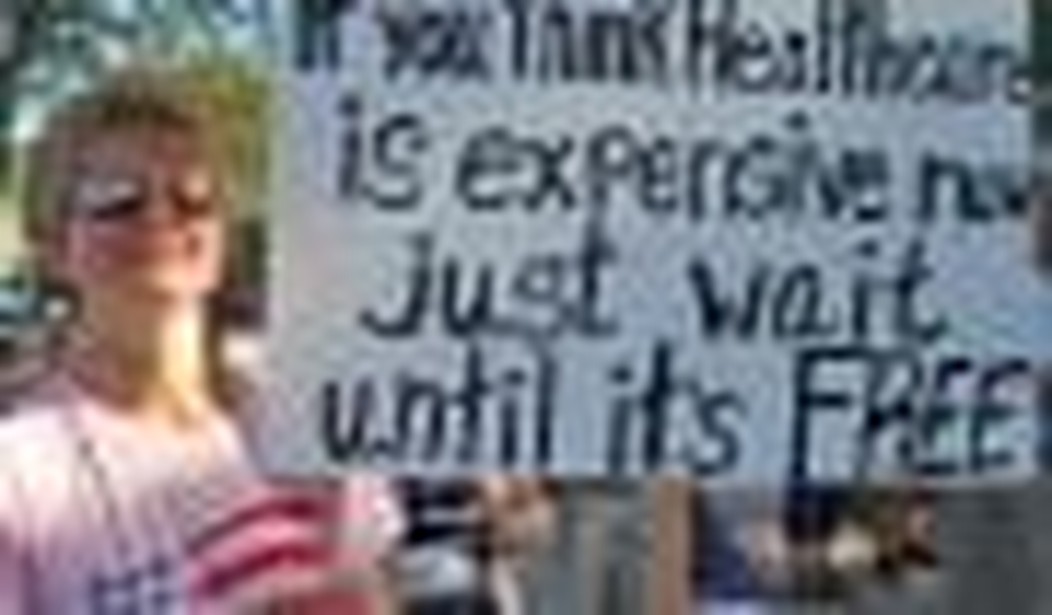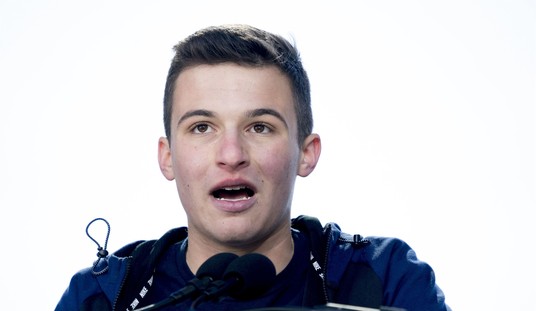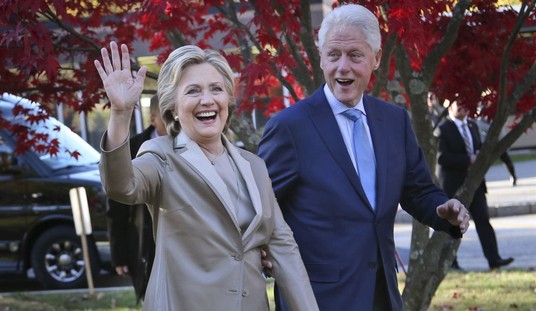It’s hard to believe that the hip author of the bestselling Freakonomics in a New York Times blog post, “How Much Do Protests Matter?,” would miss the gun-toting, swastika-bearing “mobs” at town hall meetings and tea parties. His was supposed to be a book about trends, but does Stephen Dubner not know about this latest trend, of “misinformed” middle-aged “extremists” and addled senior citizens who will not sit quietly for the White House’s reality check on health care “reform”? Does he not know about them challenging the expert opinion of congressmen who, after all, have held the office for nearly thirty years?
Instead, Dubner asked several people “who have thought a lot about this topic” to weigh in.
Sophisticates “have thought a lot about this topic” — from the safety of their penthouse suites or academic offices — since the 1950s and 1960s. The hip novelist Thomas Pynchon, in 1966, the year after the Watts riots, mused in the New York Times Magazine about the “balletic quality” of the event. He pondered that within the milieu of Watts, violence is “an attempt to communicate, or to be who you really are.” For writer Norman Mailer, too, violence towards the weaker was a sign of black men’s “authenticity” — something white men should emulate. He said this in his 1957 pamphlet, “The White Negro.”
Indeed, many of those Dubner called on to comment are people who have “thought” a lot about the topic. Among these is a professor emeritus in the political science department at Boston University, Howard Zinn. His reference to protests on behalf of labor, rent control, and New Deal programs are predictable given that his widely taught A People’s History of the United States could just as easily be called The Proletariat’s History of the United States. Two other thinkers, Chester Crocker and Juan E. Mendez, focus on protests in other countries.
But as an expert thinker on domestic “protest,” Dubner brings in Bernardine Dohrn, co-founder, with now-husband Bill Ayers, of the SDS (Students for a Democratic Society) splinter group Weatherman. Dohrn and Ayers are still under investigation for the 1970 murder of San Francisco police officer Brian V. McDonnell. The police union will not let it go away.
Weatherman infiltrator and FBI informant Larry Grathwohl in his book about the period, Bringing Down America, describes the young Dohrn at a council meeting. Dressed in a short miniskirt and see-through blouse, she “stood erect, like a high priestess waiting for her followers to quiet down.” She “radiated confidence and displayed a poise that can be acquired only from countless public appearances.”
But once the crowd quieted down, “her words belied her feminine appearance. At one point she praised Charles Manson, the freaked-out cultist who killed movie actress Sharon Tate and seven others. ‘Dig it,’ Bernardine said of the Manson attack. ‘First they killed those pigs, then they ate dinner in the same room with them. Then they even shoved a fork into one’s stomach. Wild.’”
She went on to chastise white revolutionaries for being “afraid of fighting alongside blacks in the street.” Grathwohl recalls Ayers later chiding the group for leaving the hard, dangerous work to Dohrn; he complained that Dohrn had to set the bomb that killed McDonnell. It was accepted by the Weathermen that a certain number of innocent lives would have to be lost in the communist revolution they would bring about. And those who resisted the new regime would be sent off to special camps.
Dohrn, now clinical associate professor of law at Northwestern, on August 20, 2009, cited the Underground Railroad and protests for gay rights, against lynching, and against the Vietnam War. After referring to “invisible privileges” of being white, she asks, quite illogically, “Why is it so popular to admire dissidents in other countries but succumb to the social pressure to go along with homelessness, mass incarceration, and Katrina displacement at home?”
“Protest encompasses acts that are individual and collective, literary and rousing, pathetic and transcendent,” she muses now. She cites “the flamboyant truth-telling of Vietnam vets against the war who threw their medals back at the warmakers.” But the left had little concern for those purged after our troops withdrew, and though protesters wailed about innocent Iraqi civilians killed during our “invasion,” almost nothing is heard about those killed by terrorist acts since our troops began withdrawing.
That’s because the protests by the left have as their aim the downfall of the entire “system” (or some selfish objective, like ending the draft). The left would have found something to protest about the Bush administration even without the war, because he represents everything they hate: patriotism, American exceptionalism, and belief in God. (Bush’s talk about his faith sent leftists over the edge.)
But Dohrn and Ayers, ensconced in their cushy jobs in academia, have inspired a new generation of protesters by indoctrinating them with their romanticized version of 1960s protest. They have resuscitated the SDS and call it Movement for a Democratic Society, a group reputedly behind the violent shout-down that forced Tom Tancredo to abruptly end his talk on illegal immigration at UNC Chapel Hill. The behavior of demonstrators on behalf of illegal immigrants does not match the rhetoric about their desire to be a part of American society. Nor does this assault by Code Pink indicate any kind of constructive dialogue on behalf of a goal.
Compare those demonstrations to this articulate but impassioned rebuttal to a congressman by a Marine veteran.
But Dubner did not cite someone who had actually done something to protect our First Amendment rights to protest, like a military veteran, but sociology professor David S. Meyer at the University of California, Irvine. By the looks of his syllabus on social movements, Meyer does not seem to give much credence to any kind of protest other than for the usual panoply of poor people, gays, greens, and those who “resisted” Reagan (as one required book implies).
Donna Lieberman of the New York Civil Liberties Union, another thinker contributing to Dubner’s blog post, says that protests matter because they reveal a much larger movement beneath, a greater dissatisfaction. She has the town hall coverage blaring at her every day, but as an example she chooses protests from 2003 that challenged the “deceptions of the Bush administration.”
Of course, there are no such statements of “deceptions of the Obama administration” coming from the ACLU.
But now that his approval ratings are plummeting, Obama diverts attention — once again — to Bush, specifically on pursuing CIA agents from his administration.
Will the “sleeping giant” of a larger movement fearful of losing our freedoms, as one town hall participant put it, stand for this? Democrats look very vulnerable for 2010. As we stand on the precipice of the revolution these old protesters wanted, we need to keep exercising our First Amendment rights. Then we need to kick out the professors like Ayers and Dohrn.









Join the conversation as a VIP Member